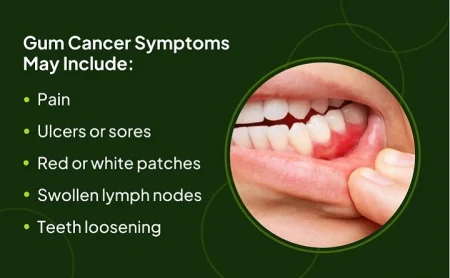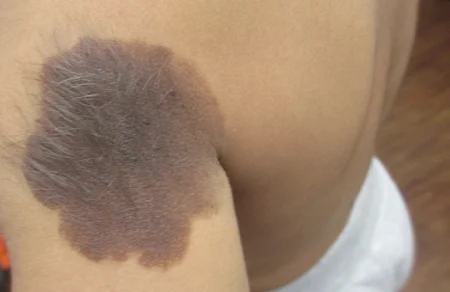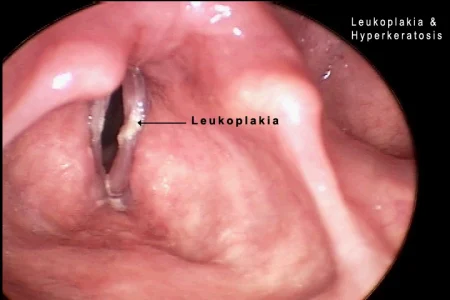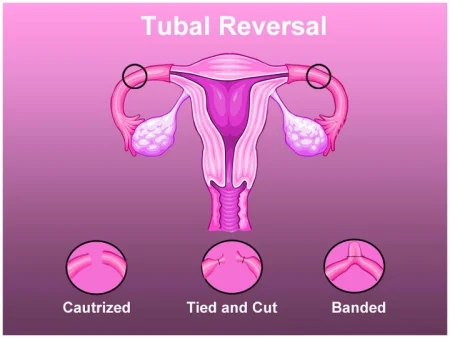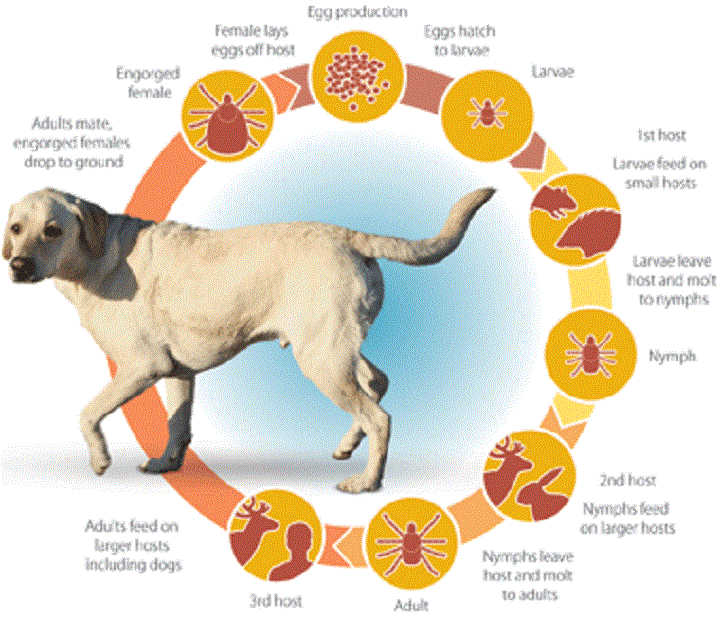It’s rejuvenating and reviving to spend time outdoors in grass, woods, or a meadow. For most of us, though, there is one teeny weeny bug that causes a terrible amount of misery: the chigger. Chiggers are small bugs that tunnel into skin and create redness, itch, and in some individuals, extreme allergy.
A chigger bite won’t hurt at first, but certain individuals with sensitive skin or allergies will have the bite swell, become rashes, and itch. Certain other individuals develop blisters or red itchy bumps. So, you should be familiar with allergic reaction chigger bites, how they form, and how you can treat them.
This article will go over chigger bites head to toe, the allergic response they cause, and all you can do for relief and prevention.
What are Chiggers?

Chiggers are the larva of extremely tiny mites, relatives of ticks and spiders. Chiggers are too little for the majority of people to see without a magnifying glass. Chiggers are mostly found in:
- Tall grass
- Weeds
- Forest floors
- Moist soil
- Overgrown gardens
Chiggers will bite you while sitting or walking on infested ground. Chiggers do not burrow in the skin as everyone has assumed. Chiggers feed on mouthpart saliva and bite into the skin. Saliva dissolves the skin cells, and the chigger sucks out liquid tissue.
The skin reacts to the saliva with itching, swelling, and reddening. That is what everyone refers to as a chigger bite.
What Is an Allergic Reaction to Chigger Bites?
Everyone does not react the same way to chigger bites. Some only experience a slight itch, and some develop an allergic reaction. An allergic reaction is the way the body’s immune system overreacts to the saliva of the chigger.
In some people with sensitive skin or a history of allergies, it is more pronounced and causes:
- Larger red welts
- Swelling around the bite site
- Severe itching feeling
- Rashes on the skin at the bite
- Pustules or blisters with swelling
In other cases, allergic reactions will also show systemic manifestations such as dizziness, shortness of breath, or urticaria. This is a dangerous disease and should be consulted by a physician early.
Symptoms of Chigger Bites
Chigger bites appear hours after being exposed outdoors. The symptoms persist for days or two weeks without medication.
Signs are:
- Painful to mild itching
- Red pimples-like pimples
- Bite blisters that are usually located on the ankles, waistline, armpit, or back of the knee
- Redness and swelling of the bitten area
- Increased itching due to scratching
Symptoms are aggravated if the bite is an allergic one and could include:
- Large, swollen welts-like hives
- Blisters or sores filled with liquid
- Spreading rash at or near the bite area
- Severe swelling that attracts or sensitizes the skin
- Burning or heat of the skin
Causes of Allergic Reaction
Allergic reaction is caused by hypersensitivity to chigger saliva protein. You are liable to overreact because of certain conditions:
- Sensitive skin: Individuals who always develop rashes as a reaction to bites by insects are most likely to be affected.
- History of allergy: Individuals with eczema, hay fever, or any other kind of allergy will respond more.
- Multiple bites: In the event of multiple bites from the same time, the reaction will be extreme.
- Scratching: Avoid scratching rigorously as this will lead to swelling, making it larger and inviting infection and thereby making the allergic reaction worse.
Treatment of Allergic Reaction Chigger Bites

If you are allergic to chigger bites, then there are a number of things that you can treat yourself with at home. In severe cases, however, a visit to the doctor is necessary.
Home Remedies
- Wash the infected area
Soap and cold water are employed. This kills saliva and reduces inflammation.
- Place a cold compress
Place an ice pack or a damp, cold cloth on bites for 10–15 minutes. This reduces itching and swelling.
- Use anti-itch creams
Anti-itch creams like calamine, hydrocortisone, or menthol reduce itching and redness.
- Use antihistamine
Benadryl (diphenhydramine) or Claritin (loratadine) tablets prevents allergic reaction and itching.
- Avoid scratching
Scratching the itch makes the itch worse and even causes infection of the skin. Trimming fingernails or bandaging bites is of some use.
Home remedy cure
- Oatmeal baths calm itching skin.
- Aloe vera gel calms burning and swelling.
- Baking soda paste (paste from baking soda and water) could calm irritation.
Medical Treatment
Consult a doctor if the allergy is severe. A doctor’s care may involve:
- Prescription steroid creams to calm swelling.
- Additional antihistamines or allergy tablets.
- Antibiotics if scratched and infected.
- As an option of last resort in one-time severe life-threatening allergy, an epinephrine injection can be administered.
Preventing Chigger Bites
The simplest prevention is avoidance of chigger bites causing allergic reactions. The following is helpful to do:
- Wear long pants, long sleeves, and socks when walking in grass or forest.
- Tuck pants into socks to prevent chiggers from contacting the skin.
- Put insect repellent with DEET, permethrin, or picaridin on skin and clothing that will be exposed.
- Sit on a blanket or chair and avoid touching grass or the ground.
- Shower immediately outdoors with soap and water following exposure to dislodge chiggers from the skin prior to biting.
- Wash outdoor clothes and gear in hot water with each use.
Complications of Chigger Bites
Most chigger bites resolve on their own within a few days. Allergic reactions become annoying unless treated properly:
- Skin infection: Because of scratching and bacterial introduction into the bite. Pus, fever, or redness spreading from the bite is a feature.
- Scarring: Repeatedly caused scratching is caused due to scarring or spots.
- Sleep Disturbance: Nocturnal pruritus causes tension and sound sleep.
- Increased Allergies: Increased allergic reactions in people with a normal immune system due to repeated biting.
When to Get Medical Attention
You should get medical attention if:
- The swelling is growing at an incredibly rapid rate.
- You have pus blisters.
- You have chill or fever.
- The rash becomes generalized on the body.
- You are breathless, dizzy, or experience face and swelling in the throat (horrible signs of allergy).
Treatment Cost
Treatment cost for allergic reaction from chigger bite varies with the severity of the case:
- Over-the-counter cream or antihistamine: $5–$20
- Doctor’s visit: $50–$200 (uninsured)
- Prescription cream or medicine: $20–$100
- Emergency room treatment for serious allergic reaction: $500 and more
Home remedy can be used generally to settle the minor symptoms at minimal costs.
Quick Relief Tips
- Make skin cold since heat causes scratching.
- Drink water in abundance because it settles down skin irritation.
- Wear loose cotton apparel to prevent bites from getting stuck in cloth.
- Do not apply perfume and scented lotions on the bite since they’ll cause irritation of the skin.
- Take ample rests, as sleeplessness might cause itching and discomfort to amplify.
FAQs
How long do chigger bites last?
Chigger bites 3–7 days, but 1–2 weeks to heal from allergic reaction.
Do chiggers spread disease?
American chiggers are not disease-carrying. The problems are primarily itching and allergic reaction.
What do allergic reaction chigger bites look like?
They are small, red, puffed-up welts or bumps, maybe in clusters. Blistering with more extreme reactions.
Can one avoid chigger bites?
Yes, by dressing in protective clothing, insect repellents, and showering after returning from outside.
Do children catch allergic reactions easily?
Yes, children’s skin is also sensitive, and therefore the reaction will be strong.
Chigger bites allergic reactions also destroy outdoor days. For most individuals, they cause itching, swelling, and blisters. Most can, however, be treated at home with home remedies like cream, cold compress, and antihistamines.
Prevention through wearing protective clothing and insecticide is the best method of prevention. But if ever you do get general swelling, infection, or shortness of breath, you will have to see the doctor immediately.
You must understand that possessing information on how to identify, treat, and prevent bites from a chigger allergy is sufficient enough to make you feel comfortable enough to go out and take care of your family and yourself.



